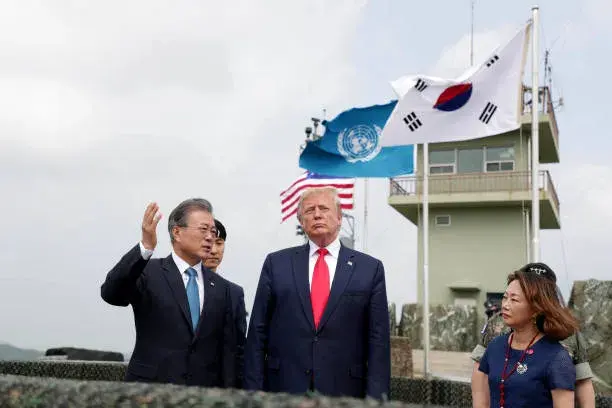What Trump says — in brief 🗣️
Trump recently told reporters that Japan would contribute $550 billion and South Korea $350 billion, all paid in advance, to fund U.S. projects. He framed these sums as part of his trade vision, tying lower tariffs to large capital commitments from allies. Reuters +2 AP News +2
To his supporters, this kind of upfront funding acts as proof that his trade “toughness” yields real results. He portrays these investments as a signal of commitment from allied nations and a reinforcement of U.S. leverage.
Pushback from Seoul and Tokyo — it’s not so simple 🛡️
South Korean and Japanese officials have been quick to temper Trump’s statements. They assert such amounts won’t (and can’t) be delivered all at once, for several reasons:
- Incremental investments vs lump sum
In both Seoul’s and Tokyo’s view, funding will align with project timelines and demands — not as one massive cash transfer. Reuters - Economic risk & safeguards
South Korea warns that demanding such large sums without safeguards (like a currency swap or guarantees) could destabilize its economy. Reuters +1
President Lee Jae Myung has cautioned that requiring a full upfront payment might echo the conditions of past financial crises. Reuters - Control and structure of funds
Seoul is resisting terms where the U.S. would have too much control over the investments. They want assurances about how funds are selected and how financial risk is managed. Reuters +2 Reuters +2 - Stalled negotiations
Because these disagreements strike at the heart of trust and sovereignty, trade talks between the U.S. and South Korea remain at an impasse. Reuters
Why this matters — beyond numbers and headlines 📊
- Alliance dynamics are tested
When a major power demands massive financial contributions from allies, the balance of respect, sovereignty, and dependency is strained. - Markets & investor confidence feel the tremors
The ambiguity around how, when, and where funds will be allocated causes uncertainty — investors dislike that kind of fog. - Narrative vs reality
Trump’s rhetoric frames the sums as proof of strength. But reality in international finance often requires nuance, staged payments, guarantees, and protections. - Domestic pressure in South Korea & Japan
Politicians and the public in those countries may resist being seen as footing a unilateral bill to satisfy U.S. narratives.
What to watch in the coming days ⏳
- Will South Korea or Japan commit to any figure in writing — and will they call it “upfront”?
- Will safeguards like currency swap lines, phased payments, or oversight mechanisms be introduced to bridge the gulf between bold claims and economic feasibility?
- How will this affect broader U.S.–Asia trade and security relationships, especially in a region already navigating tensions with China, North Korea, and supply chain disruptions?

Comments 0
No comments yet. Be the first to share your thoughts!
Leave a comment
Share your thoughts. Your email will not be published.